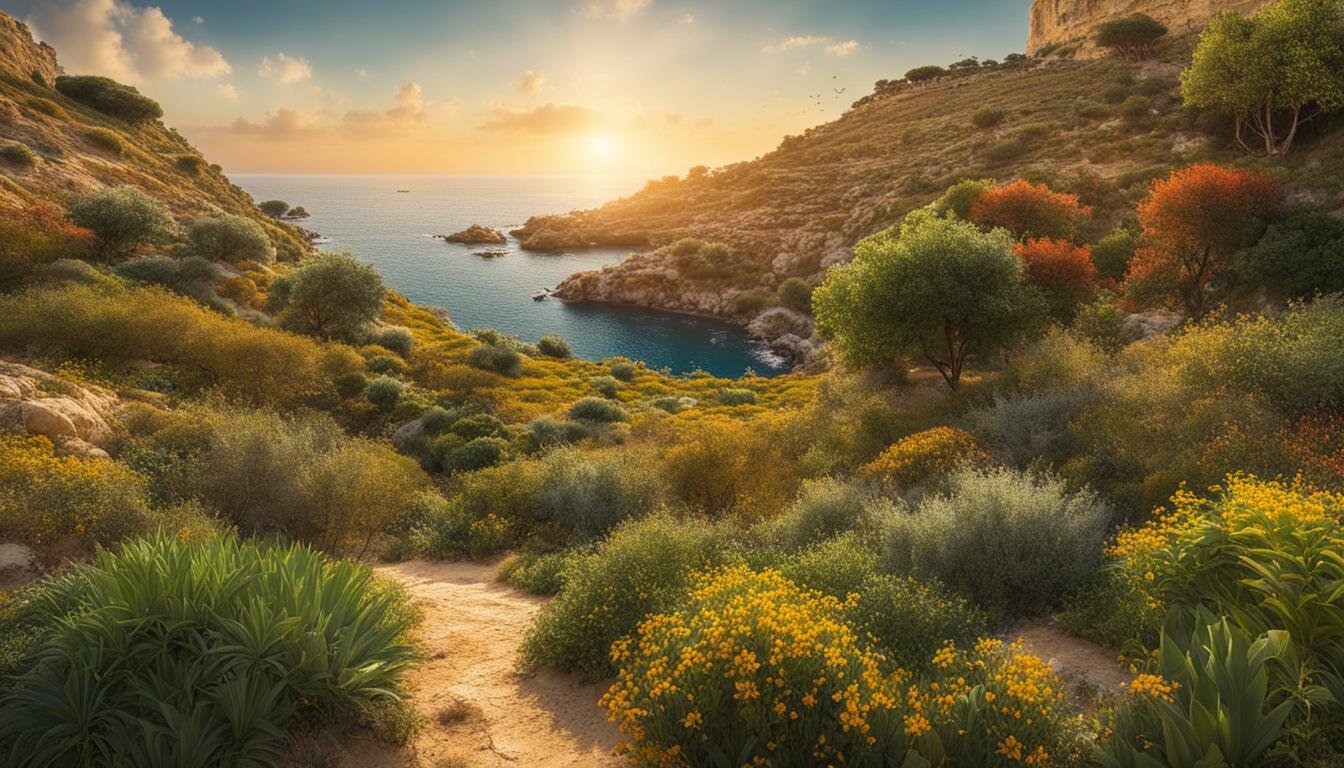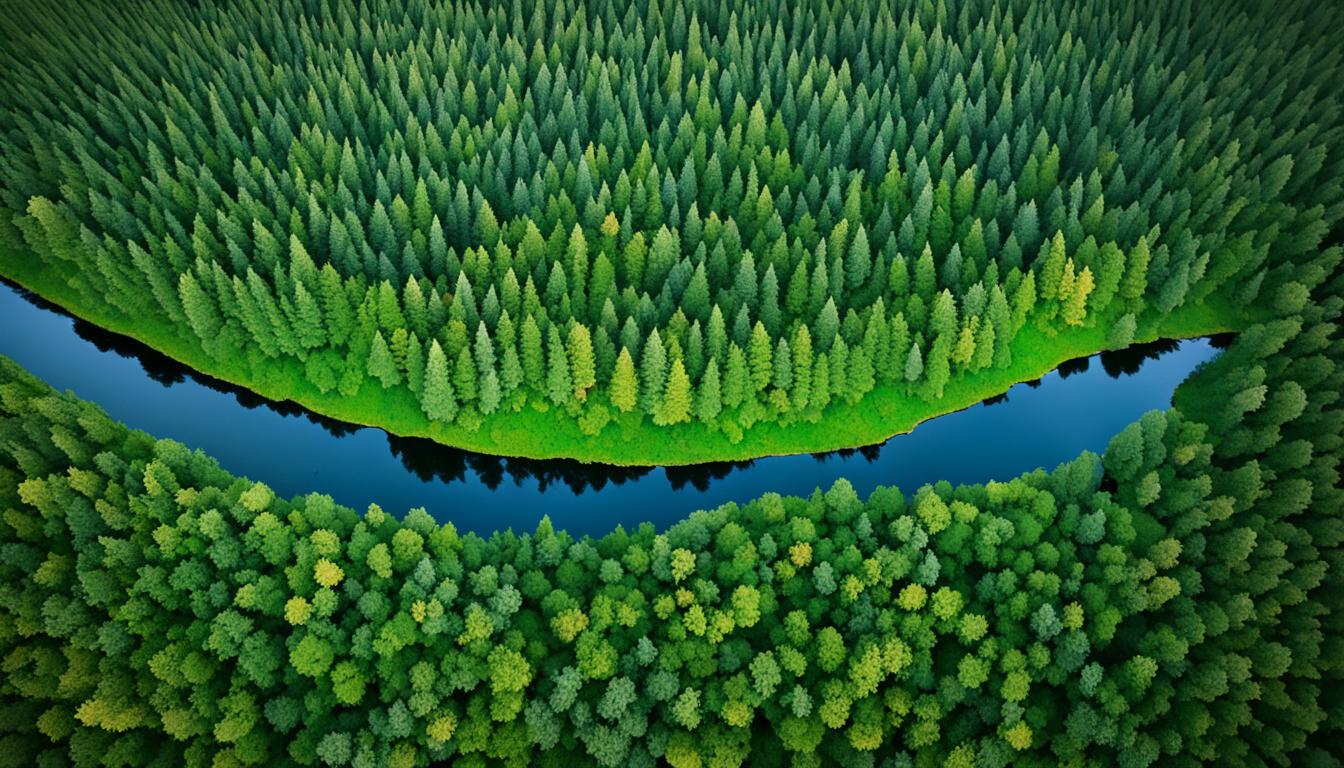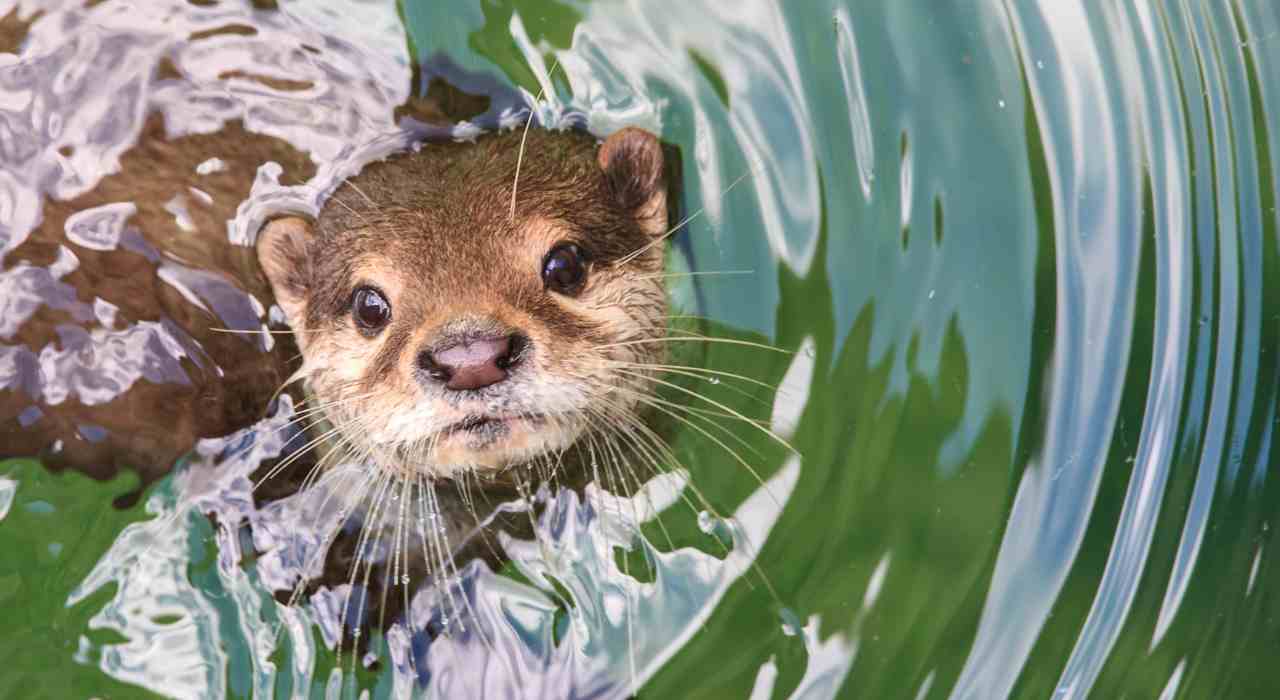Mauritania Biodiversity: Animal and Plant Species and What Is Under Threat
Mauritania is a country in Africa known for its diverse wildlife and rich biodiversity. The unique ecosystems in Mauritania are home to a wide array of plant and animal species that contribute to the country’s ecological balance and natural heritage. However, this biodiverse paradise is facing numerous threats, including habitat loss, climate change, and human activities. In this article, we will explore the fascinating world of Mauritania’s biodiversity, the importance of conservation efforts, and the challenges faced in protecting these invaluable resources.
Key Takeaways:
- Mauritania is home to a diverse range of animal and plant species.
- The biodiversity in Mauritania plays a crucial role in maintaining the ecological balance.
- Endangered species and habitat destruction are significant concerns in Mauritania.
- Conservation efforts and wildlife sanctuaries are being established to protect Mauritania’s biodiversity.
- Preserving biodiversity in Mauritania is essential for sustainable economic development and environmental protection.
The Importance of Biodiversity in Mauritania
Biodiversity plays a crucial role in maintaining the ecological balance in Mauritania. The diverse range of plant and animal species found in this region contributes to the overall health and functioning of the environment. It ensures the stability of ecosystems and provides essential services that support life on our planet.
Biodiversity is the key to the survival of all organisms. It encompasses the variety of life forms, including plants, animals, microorganisms, and ecosystems. In Mauritania, the intricate web of interconnected species and habitats forms a delicate balance that sustains the natural resources and ecological processes that are vital for our well-being.
One of the primary benefits of biodiversity is the provision of various ecosystem services. For instance, the pollination of flowering plants by insects and birds leads to the production of fruits, seeds, and other vital resources. This process not only benefits plant species but also supports the survival of numerous wildlife species, including birds, bats, and small mammals.
Biodiversity also plays a crucial role in nutrient cycling. Different species interact to recycle nutrients, ensuring their availability for the growth and development of other organisms. This process contributes to the overall health and fertility of soil, which is essential for agriculture and food production.
Furthermore, diverse habitats provide critical resources and shelter for a wide array of organisms. From forest ecosystems to coastal wetlands and savannahs, each habitat supports specific plant and animal species. The interdependence between these species creates a harmonious balance that sustains the intricate web of life.
The importance of biodiversity in Mauritania extends beyond the ecological aspects. The country’s natural resources, which derive from its diverse ecosystems, play a vital role in the economic growth and well-being of its people. Industries such as tourism, agriculture, and pharmaceuticals rely on these resources to thrive.
Recognizing the value and significance of biodiversity, Mauritania is committed to conserving its precious natural heritage. Efforts are underway to protect and restore habitats, establish wildlife sanctuaries, and implement sustainable land management practices. By preserving biodiversity, we can ensure a sustainable future for Mauritania and contribute to the global effort of safeguarding our planet’s ecological balance.
Animal Species in Mauritania
Mauritania is home to a diverse range of animal species, including mammals, birds, reptiles, and amphibians. The country’s unique ecological habitats support a variety of wildlife. Some notable animal species found in Mauritania are the African elephant, cheetah, gazelle, ostrich, and various species of birds.
However, the biodiversity of Mauritania’s animal species is under threat. Factors such as habitat destruction and poaching pose significant risks to the survival of these species. Many of them are now endangered or at risk of extinction.
Efforts are being made to protect and conserve the animal species of Mauritania.
The establishment of wildlife sanctuaries and conservation programs plays a crucial role in safeguarding these species. These sanctuaries provide protected areas where animals can thrive and habitats can be preserved.
A concerted effort involving government agencies, non-governmental organizations (NGOs), and local communities is essential to ensure the long-term survival of Mauritania’s wildlife. By raising awareness, implementing effective conservation strategies, and enforcing regulations against poaching and illegal wildlife trade, these collaboration efforts aim to protect the valuable animal species of Mauritania.

Plant Species in Mauritania
Mauritania is blessed with a diverse array of plant species, contributing to its rich biodiversity and ecological balance. The country is home to various trees, shrubs, grasses, and flowers, each playing a vital role in the local ecosystem. These plant species provide essential habitats for the animal species that inhabit Mauritania, ensuring their survival and contributing to the overall health of the environment.
However, just like the animal species, the plant species in Mauritania face numerous threats. Habitat loss, primarily due to human activities and climate change, poses a significant risk to their existence. The destruction of natural habitats disrupts the delicate ecological balance and endangers the plant species that rely on these habitats for survival.

Conservation efforts in Mauritania are essential for preserving and protecting these valuable plant species. Through sustainable land management practices, reforestation initiatives, and increased awareness about the importance of biodiversity conservation, it is possible to mitigate the threats faced by the plant species in Mauritania.
| Plant Type | Number of Species |
|---|---|
| Trees | 237 |
| Shrubs | 189 |
| Grasses | 162 |
| Flowers | 125 |
Threats to Biodiversity in Mauritania
Mauritania’s biodiversity is facing numerous threats. Habitat loss and fragmentation due to human activities such as agriculture, urbanization, and infrastructure development are major factors contributing to the decline of biodiversity. The expansion of agricultural land and the clearing of forests for construction purposes have resulted in the destruction of natural habitats for many plant and animal species.
Climate change and its impacts on the country’s ecosystems are also a significant threat. Rising temperatures and changing rainfall patterns can disrupt the delicate balance of Mauritania’s habitats, affecting the survival and distribution of various species. The increased frequency of extreme weather events, such as droughts and floods, further exacerbates the challenges faced by vulnerable ecosystems.
Additionally, illegal hunting, poaching, and the illegal trade of wildlife pose a risk to the survival of many species in Mauritania. The demand for exotic animal products drives the illegal wildlife trade, which threatens the populations of iconic animals such as elephants, cheetahs, and ostriches. These activities not only impact the targeted species but also disrupt the entire ecological balance of the region.
To address these threats, it is crucial to prioritize conservation efforts and environmental protection in Mauritania. Implementing sustainable land management practices, promoting responsible urban development, and enforcing strict regulations against illegal hunting and trade are essential steps towards safeguarding the country’s biodiversity for future generations.

Conservation Efforts in Mauritania
Despite the challenges, Mauritania is dedicated to conserving its rich biodiversity. The government has established wildlife sanctuaries and protected areas to safeguard critical habitats for endangered species. These sanctuaries act as safe havens, providing essential protection and allowing vulnerable species to thrive and reproduce.
International organizations and NGOs are actively collaborating with local communities to promote conservation initiatives and raise awareness about the importance of preserving Mauritania’s biodiversity. Through education and community involvement, these efforts aim to foster a sense of stewardship and inspire individuals to contribute to biodiversity conservation in their own ways.
Mauritania’s commitment to biodiversity conservation extends beyond its borders. The country actively participates in international conservation treaties and cooperates with neighboring countries to ensure the sustainable management of shared ecosystems.
Efforts to conserve biodiversity in Mauritania are guided by science and research. Experts conduct studies to better understand the dynamics of ecosystems and the species that inhabit them, providing valuable insights for conservation planning and decision-making.
The image below showcases the beauty and diversity of wildlife found in the wildlife sanctuaries of Mauritania:
Beyond protecting endangered species, conservation initiatives in Mauritania also focus on preserving the country’s unique plant species. Forests, wetlands, and other natural habitats are recognized as important areas for both plants and animals, and are managed accordingly to ensure their long-term survival.
“The conservation efforts in Mauritania reflect a strong commitment to preserving the country’s natural heritage. By safeguarding critical habitats and engaging local communities, we are moving towards a sustainable future where biodiversity thrives.” – Dr. Sarah Jones, Conservation Biologist
Conservation Achievements in Mauritania
The dedicated conservation efforts in Mauritania have already yielded positive outcomes. Here are a few notable achievements:
| Conservation Achievement | Impact |
|---|---|
| Establishment of Nouadhibou National Park | Protects a crucial coastal habitat for migratory birds and marine life. |
| Creation of Banc d’Arguin National Park | Preserves a world-renowned wetland and breeding ground for numerous bird species. |
| Collaboration with international organizations | Strengthens conservation efforts through knowledge sharing and resource mobilization. |
These achievements serve as inspiring examples of how collaboration between various stakeholders can make a significant difference in conserving biodiversity.
Economic Value of Biodiversity in Mauritania
The biodiversity in Mauritania plays a vital role in driving economic growth and development. The country’s abundant natural resources, including its diverse wildlife and plant species, contribute significantly to various sectors, such as tourism, agriculture, and pharmaceuticals.
One of the key economic benefits of preserving biodiversity in Mauritania is the thriving tourism industry. The country’s unique ecosystems and wildlife attract nature enthusiasts, adventure seekers, and wildlife photographers from across the globe. Tourists visit protected areas and wildlife sanctuaries to experience the rich biodiversity firsthand, contributing to the local economy through accommodation, transportation, and other tourism-related services.

In addition to tourism, biodiversity also supports the agricultural sector in Mauritania. The country’s plant species, including various crops and medicinal plants, contribute to food security and provide income opportunities for local farmers. Biodiversity helps maintain the soil fertility and pollination processes necessary for successful agricultural production.
Furthermore, Mauritania’s natural resources, including its mineral deposits and marine resources, play a significant role in its economic growth. The mining sector, which utilizes natural resources sustainably, contributes to job creation, foreign investment, and revenue generation for the country. Additionally, the marine resources, including fish and other valuable marine organisms, support the thriving fishing industry, providing employment and income for communities along the coast.
Preserving biodiversity is not only crucial for ecological reasons but also for sustainable economic development in Mauritania. The responsible and sustainable use of natural resources ensures their availability for future generations and promotes long-term economic stability. By conserving biodiversity and protecting the natural environment, Mauritania can continue to harness the economic potential of its natural resources while safeguarding the delicate balance of its ecosystems.
Challenges in Biodiversity Conservation
Biodiversity conservation in Mauritania presents a range of challenges that need to be addressed for the effective protection of its unique ecosystems and wildlife. These challenges result from limited funding and resources, weak enforcement of environmental laws, and a lack of public awareness and education about the significance of biodiversity conservation.
The insufficient funding and resources allocated to biodiversity conservation initiatives hinder the implementation of comprehensive conservation strategies and leave crucial habitats vulnerable to degradation and destruction. Without adequate financial support, it becomes increasingly challenging to carry out essential research, establish protected areas, and implement conservation programs that safeguard endangered species.
In addition, weak enforcement of environmental laws undermines conservation efforts in Mauritania. The lack of stringent monitoring, regulation, and penalties allows illegal activities, such as wildlife trafficking and habitat destruction, to persist unchecked. Stronger enforcement mechanisms and the development of robust legal frameworks are essential to combat these threats and protect the country’s biodiversity effectively.
Furthermore, a lack of public awareness and education about the importance of biodiversity conservation contributes to the challenges faced in Mauritania. Many individuals may not understand the critical role that biodiversity plays in maintaining ecological balance, supporting food security, and providing valuable ecosystem services. Increasing public awareness and knowledge about biodiversity can help generate support, engagement, and responsible actions to preserve Mauritania’s natural heritage.
Addressing these challenges requires collaboration between government agencies, non-governmental organizations (NGOs), and local communities. Through partnerships and coordinated efforts, it is possible to secure sustainable funding, strengthen environmental legislation, and implement educational programs that promote biodiversity conservation in Mauritania.

Challenges in Biodiversity Conservation
| Challenges | Impact |
|---|---|
| Limited funding and resources | Inadequate conservation measures and compromised protection of habitats and species |
| Weak enforcement of environmental laws | Perpetuation of illegal activities and destruction of biodiversity |
| Lack of public awareness and education | Insufficient support and engagement for biodiversity conservation efforts |
Future Prospects for Biodiversity in Mauritania
The future of biodiversity in Mauritania depends on the collective efforts of all stakeholders. It requires sustainable land and resource management practices, increased funding for conservation initiatives, and stronger enforcement of environmental laws. Additionally, raising awareness and educating the public about the value of biodiversity will play a crucial role in ensuring its long-term preservation.
| Challenges in Biodiversity Conservation | Solutions |
|---|---|
| Limited funding and resources | Increased investment in biodiversity conservation programs |
| Weak enforcement of environmental laws | Strengthened regulatory frameworks and penalties for non-compliance |
| Lack of public awareness and education | Public outreach campaigns and educational initiatives |
“The future of Mauritania’s biodiversity lies in our hands. By adopting sustainable practices, providing adequate funding, and raising awareness, we can ensure the long-term survival of our precious natural heritage.”

Collaborative Conservation Efforts
Conservation efforts in Mauritania rely on collaborative partnerships between government agencies, NGOs, local communities, and international organizations. By working together, these stakeholders can combine their resources, knowledge, and expertise to implement effective conservation strategies, protect critical habitats, and promote sustainable development practices that benefit both people and the environment.
Collaboration is essential in addressing the complex challenges facing biodiversity conservation in Mauritania. Government agencies play a crucial role in formulating and implementing policies that support conservation efforts. NGOs, with their specialized knowledge and resources, contribute to on-the-ground initiatives such as habitat restoration and species protection. Local communities, who have a deep understanding of the local ecosystems, actively participate in community-based conservation projects.
International organizations provide technical expertise, funding, and capacity building support to enhance Mauritania’s conservation efforts. Through partnerships with international organizations, Mauritania can tap into global networks and initiatives that facilitate information sharing and best practices.
These collaborative conservation efforts have led to significant achievements in Mauritania. Protected areas and wildlife sanctuaries have been established to safeguard critical habitats, providing a safe haven for endangered species. Research and monitoring programs have been implemented to gather data and assess the effectiveness of conservation strategies.

Furthermore, collaborative efforts have raised public awareness about the importance of biodiversity conservation in Mauritania. Educational campaigns, workshops, and community outreach programs have helped to engage the local population in conservation activities.
By combining the efforts of various stakeholders, collaborative conservation initiatives in Mauritania have the potential to achieve long-term sustainability and ensure the preservation of the country’s unique biodiversity.
Conclusion
The biodiversity in Mauritania is a precious resource that must be safeguarded for the benefit of both present and future generations. Despite the obstacles, ongoing conservation efforts, alongside increased awareness and collaboration, provide hope for the preservation of Mauritania’s distinct plant and animal species. Prioritising biodiversity conservation and sustainable development is crucial to maintaining the delicate ecological balance and ensuring the prosperity of our natural heritage for years to come.
Preserving Mauritania’s biodiversity is not only a matter of environmental importance but also has significant economic value. The country’s natural resources, including its diverse wildlife and plant species, contribute to sectors such as tourism, agriculture, and pharmaceuticals. Conserving biodiversity is therefore essential not only for ecological reasons but also for sustainable economic growth in Mauritania.
To successfully protect Mauritania’s biodiversity, collaboration is key. This involves partnerships between government agencies, non-governmental organizations, local communities, and international bodies. By combining resources, knowledge, and expertise, these stakeholders can implement effective conservation strategies, safeguard critical habitats, and promote sustainable development practices that benefit both people and the environment.
FAQ
What is biodiversity?
Biodiversity refers to the variety of plant and animal species in a particular area or ecosystem. It encompasses the diversity of genetic, species, and ecosystem levels and is essential for maintaining ecological balance and functioning.
Why is biodiversity important in Mauritania?
Biodiversity is crucial for maintaining the ecological balance in Mauritania. It ensures the stability of ecosystems and provides essential services such as pollination, nutrient cycling, and habitat provision. The diverse range of plant and animal species in Mauritania contributes to the overall health and functioning of the environment.
What animal species can be found in Mauritania?
Mauritania is home to a variety of animal species, including mammals, birds, reptiles, and amphibians. Some notable animal species found in Mauritania include the African elephant, cheetah, gazelle, ostrich, and various species of birds.
What plant species can be found in Mauritania?
The country’s plant life includes various types of trees, shrubs, grasses, and flowers. These plant species play a crucial role in maintaining the ecological balance and providing habitats for animal species.
What are the threats to biodiversity in Mauritania?
Habitat loss and fragmentation due to human activities such as agriculture, urbanization, and infrastructure development are major factors contributing to the decline of biodiversity in Mauritania. Climate change and its impacts on the country’s ecosystems are also a significant threat. Additionally, illegal hunting, poaching, and the illegal trade of wildlife pose a risk to the survival of many species.
What efforts are being made to conserve biodiversity in Mauritania?
The government of Mauritania has established wildlife sanctuaries and protected areas to safeguard critical habitats for endangered species. International organizations and NGOs are also working alongside local communities to promote conservation initiatives and raise awareness about the importance of preserving biodiversity in Mauritania.
What is the economic value of biodiversity in Mauritania?
The biodiversity in Mauritania, including its wildlife and plant species, contributes to various economic sectors, such as tourism, agriculture, and pharmaceuticals. Preserving biodiversity is not only important for ecological reasons but also for sustainable economic development in Mauritania.
What are the challenges in biodiversity conservation in Mauritania?
Limited funding and resources, weak enforcement of environmental laws, and a lack of public awareness and education about the importance of biodiversity are some of the obstacles hindering conservation efforts in Mauritania.
What are the future prospects for biodiversity in Mauritania?
The future of biodiversity in Mauritania depends on sustainable land and resource management practices, increased funding for conservation initiatives, and stronger enforcement of environmental laws. Additionally, raising awareness and educating the public about the value of biodiversity will play a crucial role in ensuring its long-term preservation.
How are collaborative efforts contributing to biodiversity conservation in Mauritania?
Conservation efforts in Mauritania rely on collaborative partnerships between government agencies, NGOs, local communities, and international organizations. By working together, these stakeholders can combine their resources, knowledge, and expertise to implement effective conservation strategies, protect critical habitats, and promote sustainable development practices.








